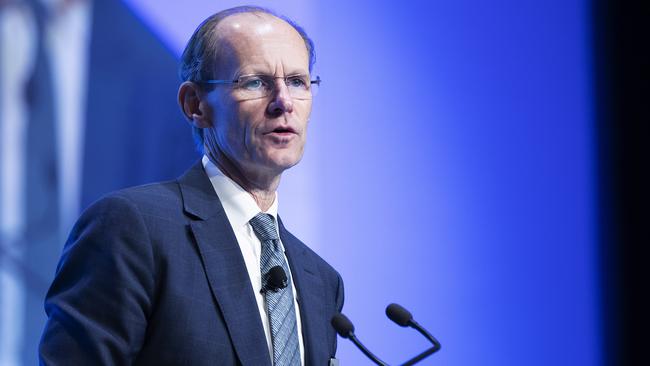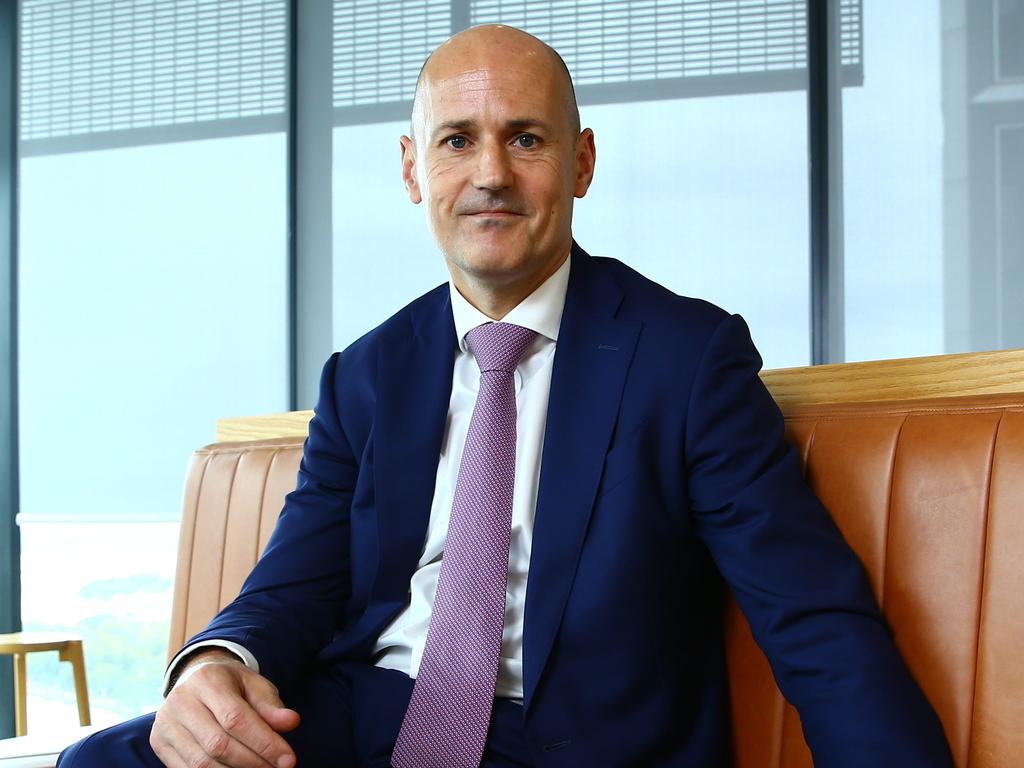
Bank of Queensland is poised to snap up industry-fund-owned ME for $1.3bn, winning out over bidders including ANZ and Bendigo and Adelaide Bank. The latter dropped out of the ME sale process last week.
Elliott wouldn’t comment directly on ANZ’s tilt at ME, but on Thursday he highlighted the case for staying open to mergers and acquisitions against the backdrop of ultra-low funding costs and ANZ being flush with capital.
“Has the scale shifted more positively towards a more growth orientation in the banks? I would say yes that’s true for ANZ,” he told this column.
“You can make a case, that is, asset prices there is going to be inflation, and whether those assets are businesses or portfolios of home loans or whatever they may be, they probably look pretty attractive.
“You don’t want to pay over the odds, you don’t want to do anything stupid, but of course those things look more attractive.”
Included in its bumper December quarter update was that ANZ is sitting on record levels of capital. Its common equity tier one ratio, for example, is 11.7 per cent as at December 31, well above the banking regulator’s 10.5 per cent “unquestionably strong” threshold.
Some of that excess capital stems from fewer dividends being paid last year, due to COVID-19 regulatory restrictions. The ANZ board will be revisiting its dividend policy in coming months, as well as having tentative deliberations around capital management initiatives such as share buybacks.
On ME specifically, Elliott labelled it a “nice market share play”. “I can understand why it would be an attractive proposition for many people in the industry.”
But Elliott is approaching potential acquisitions with discipline and a prudent approach, the same way he has dealt with the pandemic.
AMP’s bank was on the block until recently, although the wealth group said it had shelved sale plans except for its infrastructure and real estate unit.
Elliott – who has just notched five years in ANZ’s top job – is also executing the bank’s change program to ensure a digital-savvy strategy for the future, leaner cost base and better customer engagement.
“Our industry is going through massive, massive disruption; fintech, deregulation, disaggregation.
“You can literally put the lipstick-on-a-pig sort of strategy and perhaps you buy a fintech company, or perhaps you do some shiny new thing, but we’re doing a bit of a deep digital transformation.”
One plank of that is an Elliott-commissioned project dubbed ANZx, which will be piloted ahead of a launch in May for transaction accounts and home loans being added late this year.
It is focused on reinventing the bank’s services and delivering a ten-fold improvement in speed and digital capability.
With COVID-19 and loan loss risks receding, Elliott has started 2021 with vigour.
Asked about his tenure, he points out there is more to do but it’s the board decision about when the CEO baton gets handed over.
Elliott’s time in the role has seen ANZ navigate the Hayne royal commission and a global pandemic. “I had a five-year plan like anybody, so two years I gave up, one year was the royal commission … COVID didn’t distract us from what we’re doing but it made things harder.”
Elliott is of the view the COVID-19 challenges will contribute to separating the industry’s winners and losers. He also highlights the quality of his executive bench when the time comes for him to vacate the top job.
“I’m passionate about what we need to do, but I’m also really conscious that I’m not here forever and at some point I’m closer to the end of my time than the beginning … there’ll be lots and lots of choices for the board to consider.”
QBE’s dodge
There are few scheduled events annually when ASX CEOs make themselves reasonably available for engagements with the media, investors and analysts.
Profit reporting season – which falls twice a year – is among those events.
But it seems that’s not the case for under-pressure QBE Insurance, which is refusing to hold a media conference call or facilitate one-on-one interviews for journalists with interim group chief executive Richard Pryce.
QBE is handing down its full-year results on Friday.
But the insurer is citing time zone challenges and a full schedule of investor calls, given Pryce is based in London, as providing zero time for media engagement. That simply isn’t good enough for an ASX-listed company that last year exited its former CEO over poor conduct and should be displaying transparency and openness.
The company has scheduled a conference call on Friday for analysts and investors but journalists are unable to ask questions.
If companies including Rio Tinto, Brambles and Amcor and Worley can manage media and analyst and investor calls from offshore jurisdictions, navigating unfavourable time zones relative to Australia, QBE has no excuse.
In December, QBE signalled its result would come in as a full-year loss of $US1.5bn, with its bottom line hit by writedowns, COVID-19 costs and elevated catastrophe costs.
The update put QBE’s final dividend in doubt and, at the time, it held a webinar and conference call, again restricted to analysts and investors.
QBE parted ways with former CEO Pat Regan last year following a complaint from a US-based female employee.








ANZ boss Shayne Elliott is keeping a keen eye on potential acquisitions given conducive conditions and a new growth mindset, even after the lender missed out on buying ME Bank.